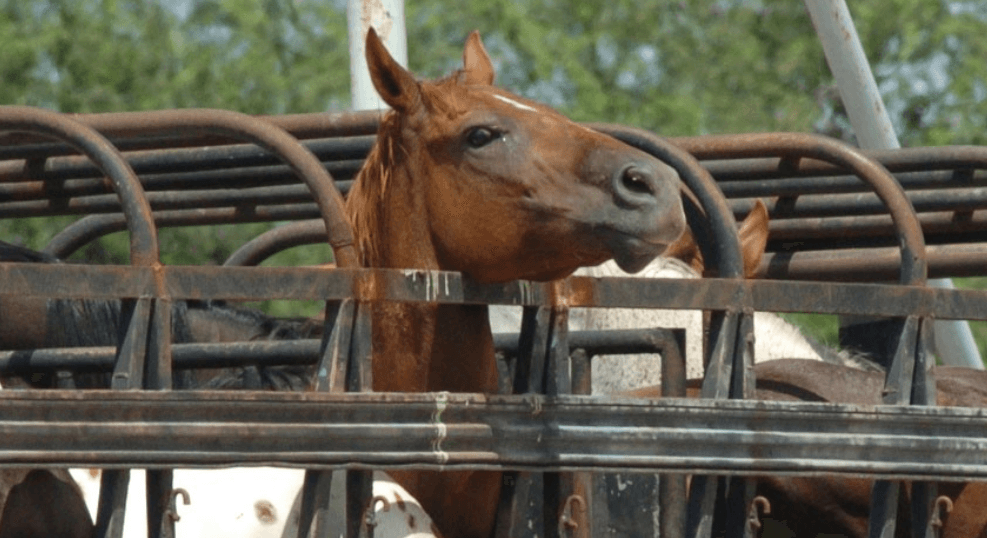The cruelty suffered by American horses exported for slaughter in Mexico and Canada has drawn a bipartisan group of more than 200 veterinarians and a number of animal rights groups to urge Congress to ban the practice.
The gory scenes seen on videos filmed in foreign slaughterhouses include terrified horses slipping and falling in their own blood and trashing upside-down hung from a single leg. The animals can be seen desperately trying to escape after witnessing other horses being beaten and bludgeoned.




